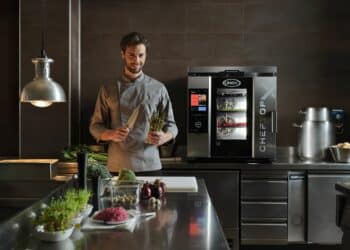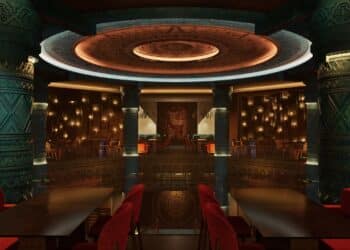
Diversifying from its core focus on airlines, Amadeus has announced a number of huge developments over recent months; including the acquisitions of Hotel SystemsPro, Newmarket International and Itesso. Jeff Hiscox, president and CEO of Newmarket, an Amadeus company, explains why hotels are getting the airline distribution makeover and how Amazon and Google may have a lesson for the industry.
What are the primary consumer trends that are driving the travel and hospitality markets currently?
At Amadeus, we have long been committed to really understanding the traveller and their preferences, travel needs and habits. We commissioned Future Foundation to develop a new study, Future Traveller Tribes 2030: Understanding tomorrow’s traveller, which seeks to identify different ‘tribes’ or different traveller segments that will shape the future of travel through to the end of the next decade. The report found that in order to truly cater for the travellers of tomorrow, the industry needs to ensure they truly understand the traveller as an individual and offer products based on this – in the same way that major retailers and technology providers such as Amazon and Google have already learnt to do.
Are there any emerging trends which have surprised you and what do you predict the impact of these will be?
Specifically in the hotel and hospitality industry, the common thread between all traveller ‘tribes’ is the need for personalisation. Currently, personalisation is possibly the biggest trend in the hospitality sector – however, it could be argued that rather than a passing trend, personalisation is driving what lies at the heart of the industry – the ability to make our customers feel at home.
The GCC doesn’t work as other markets do – LCCs aren’t as prevalent, consumer rail travel is non-existent, hotel stock is mainly upper-upscale and luxury. How does that change traveller behavior and how do you predict the market will adapt in future?
Offline channels still heavily dominate in hotel distribution in the region and we offer booking applications tailored to the specific needs of travel agencies in the region offering the most relevant hotel content and payment methods sourced from regional and global providers. Guests here have very high expectations when it comes to service levels – even more so than in other regions – and today this means equally high expectations when it comes to personalised and mobile-enabled services especially for upscale branded properties.
In terms of region-specific traveller behaviours, a recent Amadeus study identifies emerging traveller profiles in the region: the ‘coming of age traveller’. About 25% of the GCC population today is under the age of 15; the ‘family traveller’ – there is a strong preference in the region to undertake leisure travel with family and family friends; and the ‘independent middle class business and seasonal traveller’. Each of these profiles will have their own divergent set of aspirations and needs to be catered to. In addition, we see changes which will increase intra-regional travel and facilitate more inbound travel to the region such as an easing of visa requirements in the coming years.
The region is investing heavily in infrastructure and in specialist tourism sectors such as conferences, events and cruises. This means competition is becoming more intense, with more and more new hotels springing up within the region – targeting groups and corporate events. With so many hotels on offer, customers such as meeting planners and corporate buyers have the ability to be more demanding than ever when it comes to selecting hotels for their conferences or events. Hotels need to be tuned-in to local trends, attractions and flight and transport guidance, as well as their own products, in order to attract the most business.
While locally, group business also still conducted by phone and via face-to-face meetings, international business must be targeted via a hotel’s own website. A lot of investment has gone into optimising online distribution, direct as well as OTA, targeting transient business. However, we see room for hotels in the region to optimise their website to better fit meeting planners and corporate buyers’ needs. Quick turnaround time on proposals is paramount to win business and these must always be professional and highly accurate. We also see an opportunity for hotels in the region to leapfrog to online collaboration tools particularly for international group and event business so staff can deliver on the high service expectations of their meeting planner clients.
There have been a number of huge developments at Amadeus over recent months including the acquisitions of Hotel SystemsPro, Newmarket International and Itesso. This marks a departure from the aviation focus Amadeus was established under and sees a strong move into property management. Why were these decisions taken and what is the future for Amadeus moving forward with this new operational capacity?
Our strategy is to diversify and our recent acquisitions and bring Amadeus closer to replicating its success in the Airline IT industry to the hotel and hospitality industry. The acquisitions also bring infrastructure, expertise and high-value solutions, which are allowing us to accelerate in delivering on our promise. The now-extended promise will work to offer a next-gen, end-to-end community model platform, which will serve hotels at both enterprise and property level.
What is the community model and what inspired the concept? How will it shape products in future?
Many hoteliers tell us that current fragmented technologies are holding them back from achieving their business goals and hinder hotels when it comes to delivering personalised and differentiated brand experiences and retaining or regaining control of their distribution. Many hotel organisations are looking for more integrated solutions that can cover their critical business needs and give them a single view of their guests and of the business.
This feedback inspired us to work with hoteliers to build out a hotel community model IT platform.
The community model involves a system being shared by a number of companies with a percentage of the revenues allocated to fund the continual development of the infrastructure. It is a common approach and is in place across the airline industry with Amadeus as the technology partner.
The community model brings together a community of major travel suppliers (including hotel chains, over 140 airlines, car rental companies, etc.) and allows users to use innovative technology, as the functionality of the system is determined by the members.
By having dedicated technology experts to build and develop a core infrastructure, its members are left to focus on business and brand developments that can build a competitive advantage. The community model offers the benefits of scale beyond the size of one single company, through use of a common platform and sharing of cost across all users. It also ensures continual development in the infrastructure as multiple companies are contributing fees, which will be reinvested.
Looking now at the automation of sales and catering software, how much has the hospitality industry embraced this? What are the primary advantages in doing so and what are the main objections you hear to not doing so?
There are huge efficiencies to be gained through using technology to optimise the sales and catering side of the hotel business, which can account for up to 30 to 50% of a full service hotel’s revenue.
The benefits of these solutions also impact logistical processes and make day-to-day processes more effective. Sales and catering teams can work smarter and spend more time generating revenue, managing their accounts and creating enhanced events because normally tedious and lengthy tasks, such as creating sales proposals, can be accomplished in a matter of minutes. The sales software, specifically, allows hotel sales teams to gain greater insights into what opportunities are the most valuable, resulting in better forecasting, meaning they can be focused on their work and use intelligence that is already in place rather than reinventing the wheel with each proposal.


































































